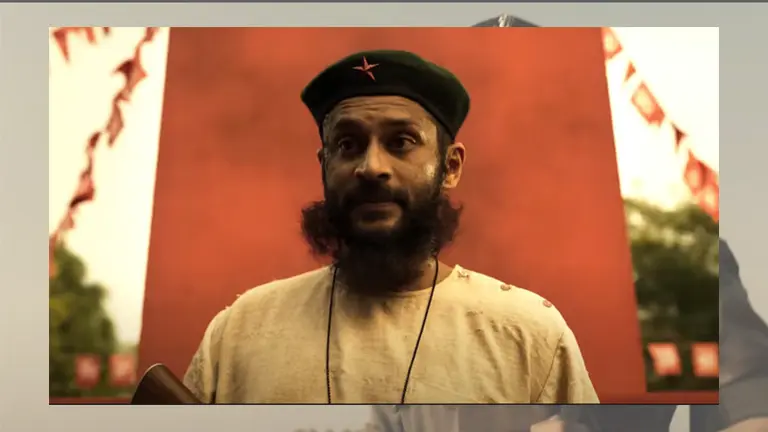The director Sudipto Sen presents a new, expansive critique in his latest work, delving even further into conspiracy theories. and Bastar’ Paints Maoists as Terrorists
In “Bastar – The Naxal Story,” the film’s most neutral statement comes early: the opening credits caution viewers about its “unsettling images.” Within minutes, the film plunges into the heart of Chhattisgarh, where a villager who dared to defy Maoist insurgents by saluting the national flag meets a gruesome fate, hacked to pieces. Graphic visuals and chilling sounds highlight the merciless brutality of the Maoists, drawing comparisons to groups like the Islamic State and Boko Haram. The film’s core focus, crafted by Sen, Amarnath Jha, and Vipul Shah, centers on the Supreme Court’s ban on the Salwa Judum militia, once backed by the Chhattisgarh government in the fight against Naxalism. Established in 2005 by politician Mahendra Karma (portrayed as Rajendra Karma in the film), Salwa Judum faced dissolution in 2011 amidst numerous allegations of arbitrary actions and criminal involvement.
Sudeep Chakravarti’s poignant tribute in the Mint newspaper to Karma, who was assassinated in 2013, began with the striking words: “Mahendra Karma is dead. And I am here to write ill of him.”
“Bastar” unveils a scathing portrayal of a vast network of troublemakers. Under the leadership of the corrupt Lanka Reddy (Vijay Krishna), the film suggests that the Maoists are part of a global alliance that includes groups like Lashkar-e-Taiba, Liberation Tigers of Tamil Eelam, United Liberation Front of Assam, and Filipino Communists.
In Delhi, the affluent writer Vanya Roy (Raima Sen) strategically employs her work as a façade to garner support for the Maoist insurgency. She boasts of adding “five more universities” to the cause. The film warns of the omnipresence of Leftist extremists in colleges, Bollywood, the art scene, and civil society. At the apex court, lawyer Neelam Nagpal (Shilpa Shukla) argues on dual fronts: to outlaw the Salwa Judum under Rajendra Karma (Kishor Kadam) and prosecute Indian Police Service officer Neerja Madhavan (Adah Sharma). Neerja becomes the sole barrier standing against the Maoist onslaught on democracy. “I don’t like people who complain and explain,” she asserts. “I want results, period!”
Following the death of the villager who saluted the flag, Neerja intensifies her mission, recruiting the victim’s wife, Ratna (Indira Tiwari), as a special police officer, promising her retribution in a hushed whisper.
In this film, the line blurs between vendetta and social justice, with Communism itself positioned as the prime adversary. While drawing from real events, such as the massacre of 76 Central Reserve Police Force soldiers, “Bastar” remains uninterested in subtlety, much like Neerja’s steadfast adherence to official protocols.

“Bastar” takes a blunt aim at all Indians of a left-liberal inclination, insinuating that their beliefs inadvertently endorse extremist ideologies. A montage juxtaposes a revolutionary anthem sung on a Delhi college campus with a raucous Maoist celebration of the CRPF killings in Bastar. The film portrays nearly every human rights activist as aiding the Maoists in their pursuit of a violent dictatorship. Vanya, with her sophisticated demeanor of wine and cigarettes, epitomizes what the Hindutva brigade dubs the “tukde-tukde gang.”
Vanya discreetly leaks information to the Maoists, aiding them in claiming more lives. The film implicates journalists in the conspiracy, suggesting even Supreme Court judges fall prey to Neelam Nagpal’s persuasive arguments.
“We have a bunch of wimps running the country,” declares Neerja, punctuating her sentiment with an unprintable expletive.
Portrayed with unwavering determination bordering on obsession by Adah Sharma, Neerja embodies Sudipto Sen’s vision of combating Communism. “Are you done?” she’s asked in the midst of a fiery speech lambasting a minister. “I haven’t even begun,” she retorts. And so the intense narrative unfolds for 124 minutes.
Read HanuMan review: https://thelatereview.com/hanuman-movie-review-divine-marvel-and-superhero-spectacle/



